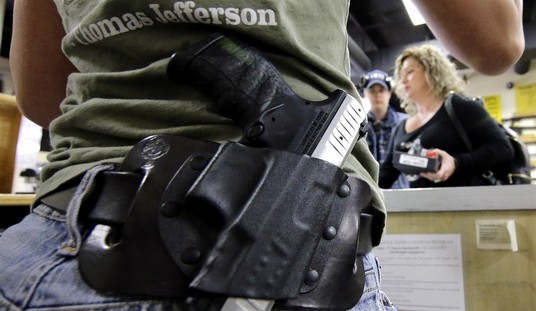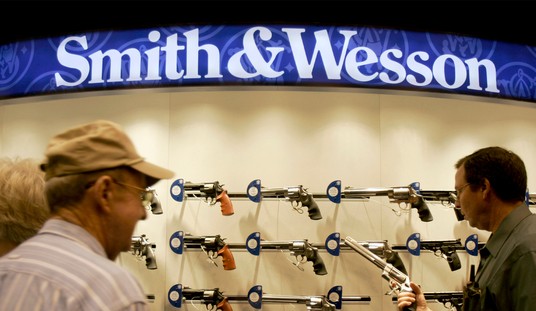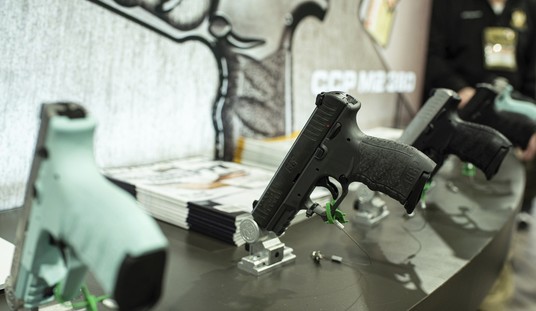One thing you have to tend to be cautious of are the people who claim to be on your side. They start off by saying something like, “I believe in the Second Amendment but…,” and usually follow it up with something that doesn’t sound a thing like what a fan of the Second Amendment would actually say. By the time the word “but” comes out, my skin starts to crawl because I know something bad is coming.
Over at The Daily Caller, I tend not to worry too much. After all, if someone who contributes there claims to be in favor of the Second Amendment, they usually are.
For example, there was a post over there on Wednesday worth a look. It had five ideas to supposedly reduce gun violence and was from someone who claimed to be a Second Amendment supporter.
A couple of the ideas were solid. For example, making penalties stiffer may well curb criminals’ interest in using a firearm for various crimes. I’m not so sure it really matters whether a gun or a knife is used in some cases, but I’m willing to keep an open mind.
However, there were a couple of suggestions the writer, Alex Plitsas, threw out there that have me wondering what we need an opposition for if this is what “our side” can come up with.
2. Make background checks universal. Anyone wishing to purchase a firearm from a private sale, a gun show, or a store should undergo a background check to ensure that the individual is not a criminal, felon, suspected terrorist, or suffering from a mental, emotional or behavioral health issue, which should preclude them from purchasing a weapon. There is widespread support for this policy proposal but the issue has always been with the mechanics of doing so. I will address the extrajudicial processes that must be reformed in order for this to work and not violate the constitutional rights of the people next.
Universal background checks sound fine, except for the fact that they’re completely and totally unenforceable without also implementing a registration scheme along with it.
As things stand right now, there are tens of millions of firearms floating around, and no one knows who owns what. I personally see this as a feature, not a bug, but regardless of what it is, it’s also the reality as it stands right now. Without registration, no one will know who owns what, and no one will know who bought what when.
All it will do is take an act that is currently legal and make it illegal, probably creating countless new felons in short order. However, it won’t do a whole lot to stop criminals from getting guns.
While many criminals do purchase firearms in face-to-face transfers with what many think of as law-abiding gun owners, many of those sellers are people who know the criminal history of their customers and simply don’t care. Without the means to enforce a universal background check, those sales will still take place.
All that will happen is life becomes more difficult for the real law-abiding citizens.
But Plitsas wasn’t done. He also offered up this one:
4. Deny guns to people with mental health problems. The common factor that all of the murderers who have committed mass shootings share is mental or behavioral health issues. Upon diagnosis, a licensed psychiatrist or psychologist, who is authorized to diagnose mental or behavioral health disorders or diseases, should report the diagnosis to a federal list which would trigger a rejection if the patient attempts to purchase a firearm. Law enforcement should also be able to order a psychiatric evaluation for suspects, such as the man who just committed the mass murder in Florida, demonstrating erratic behavior. A refusal to submit to an evaluation should also lead to a denial when attempting to purchase a firearm — much as a refusal to take a breathalyzer test leads to a suspension of your driving privileges. The definition of what types of diseases, disorders, or symptoms should prevent an individual from purchasing a firearm must be clearly defined. As is the case with other watch lists, the individual in question should have the right to appeal through due process.
Now, I don’t disagree that some people with mental health issues probably shouldn’t have a firearm. However, a paranoid schizophrenic and someone with depression are very different animals. One is an absolute menace if they’re off their meds. The other is far more likely to kill a gallon of Hagen Daz than commit a crime because of their illness.
The argument being made here is one that has to be tread carefully. Far too many people would delight in expanding the listing of people who can’t own a firearm to such a point that many otherwise safe people are suddenly forbidden to own a gun.
The issue here isn’t Plitsas’s proposal so much as how easily it can be misinterpreted.
Further, while I’m as big of a fan of due process as Plitsas apparently is, it should also be noted that many people simply don’t have the means to fight their inclusion on lists improperly. Appeals over legal matters cost money, something many people may not have. We need to be very, very careful about where we go when it comes to restricting someone’s rights; we may end up denying someone who has no options but to accept a faulty ruling.
While most of us do want to combat violent crime, suggestions like this don’t really help. If anything, they embolden the anti-gunners to think they’re winning a debate that is, ultimately, for the very soul of our nation.








Join the conversation as a VIP Member